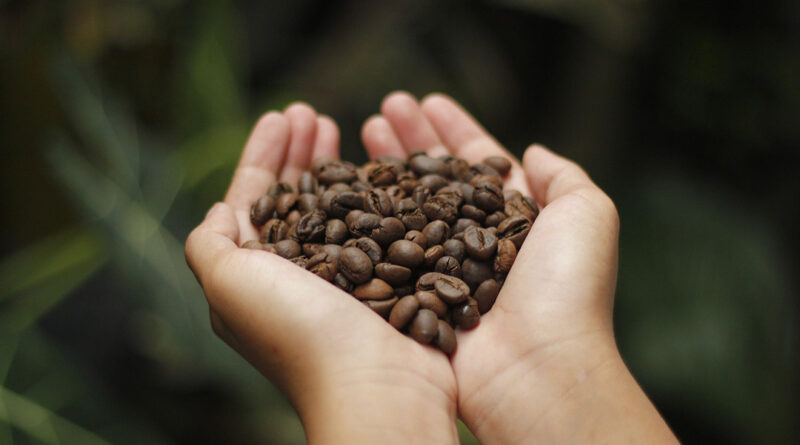Sustainability in the Coffee Industry: How to Make Your Daily Cup Ethical and Eco-Friendly
Coffee is one of the most widely consumed beverages in the world, and it has become an integral part of many people’s daily routine. However, the coffee industry is also notorious for its negative impact on the environment and the social well-being of coffee growers. The good news is that there are ways to make your daily cup of coffee more sustainable, ethical, and eco-friendly. In this article, we’ll explore the coffee industry’s impact on the environment and society and discuss ways to make your daily cup of coffee more sustainable.
The Coffee Industry
The coffee industry has a massive impact on the environment and society, and it is essential to be aware of this impact. The coffee industry is responsible for significant deforestation, greenhouse gas emissions, water pollution, and waste. Furthermore, the coffee industry is known for its exploitation of coffee growers, who often face low prices, poor working conditions, and lack of support.
Environmental Impact of the Coffee Industry
The coffee industry’s impact on the environment is significant. It is therefore essential to understand the environmental issues associated with coffee production. Coffee is one of the most heavily traded commodities globally. Its production requires vast amounts of land, water, and other resources. The coffee industry has been linked to deforestation, particularly in developing countries, where the land is cleared to make way for coffee plantations. Deforestation has many negative environmental impacts, including soil erosion, loss of biodiversity, and increased greenhouse gas emissions.
The production of coffee also contributes to greenhouse gas emissions, particularly in the transportation and roasting processes. In addition, coffee production requires large amounts of water, and the water used in coffee processing is often discharged untreated into waterways, leading to water pollution. Finally, the coffee industry generates significant waste, including coffee pulp, which can cause soil and water pollution.
Social Impact of the Coffee Industry
The coffee industry’s impact on coffee growers and their communities is another critical issue to consider. Coffee growers are often paid low prices for their coffee, which makes it difficult for them to make a living. In addition, coffee growers may be subject to poor working conditions, including long hours and exposure to harmful pesticides.
Coffee growers may also lack the support they need to succeed, including access to credit, technical assistance, and training. Finally, the coffee industry’s impact on coffee-growing communities can be significant, as the industry may contribute to poverty, social inequality, and economic instability.
Ways to Make Your Daily Cup of Coffee More Sustainable
There are several ways to make your daily cup of coffee more sustainable, ethical, and eco-friendly. By following these tips, you can enjoy your coffee while minimizing its negative impact on the environment and society.
- Choose Organic and Fair Trade Coffee
Organic coffee is grown without the use of harmful pesticides and chemical fertilizers, which can be harmful to the environment and human health. Fair Trade coffee, on the other hand, ensures that coffee growers receive fair prices for their coffee, which helps to support their livelihoods. Choosing organic and fair trade coffee is an excellent way to support sustainable and ethical coffee production.
- Use a Reusable Coffee Cup
Disposable coffee cups contribute to waste, and they are often not recyclable. By using a reusable coffee cup, you can help reduce waste and minimize the environmental impact of your daily cup of coffee.
- Support Local Coffee Roasters
Buying coffee from local coffee roasters is an excellent way to support local businesses and reduce the environmental impact of coffee transportation. Local coffee roasters often source their coffee from local growers, which can help to support local economies and reduce the environmental impact of coffee transportation.
- Reduce Your Coffee Consumption
Reducing your coffee consumption can help minimize the environmental impact of coffee production.
- Use a French Press or Manual Drip Coffee Maker
Electric coffee makers require energy to operate, which contributes to greenhouse gas emissions. By using a French press or manual drip coffee maker, you can reduce your coffee’s environmental impact and enjoy a more sustainable cup of coffee.
- Compost Your Coffee Grounds
Coffee grounds can be composted, which is an excellent way to reduce waste and create nutrient-rich soil for your plants. Composting coffee grounds is an easy way to make your daily cup of coffee more sustainable.
- Buy Shade-Grown Coffee
Shade-grown coffee is grown under a canopy of trees, which helps to protect biodiversity and minimize the environmental impact of coffee production. Choosing shade-grown coffee is an excellent way to support sustainable and eco-friendly coffee production.
- Support Sustainable Coffee Growing Practices
Some coffee growers use sustainable growing practices, such as agroforestry, which involves growing coffee under a canopy of trees. Supporting coffee growers who use sustainable growing practices is an excellent way to support sustainable and ethical coffee production.
- Choose Coffee Packaging Wisely
Coffee packaging can contribute to waste, and it is essential to choose packaging that is eco-friendly and recyclable. Look for coffee packaging made from eco-friendly materials, such as biodegradable plastic or paper.
- Learn About the Coffee Industry
Finally, it is essential to educate yourself about the coffee industry and its impact on the environment and society. By learning about the coffee industry, you can make informed decisions about your daily cup of coffee and support sustainable and ethical coffee production.
FAQs
- What is fair trade coffee?
Fair trade coffee is coffee that is certified as having been produced and traded in a way that supports coffee growers’ livelihoods and promotes sustainable and ethical coffee production.
- How can I tell if coffee is organic?
Organic coffee is certified as having been grown without the use of harmful pesticides and chemical fertilizers. Look for coffee that has been certified as organic by a reputable certification body.
- What is agroforestry?
Agroforestry is a sustainable growing practice that involves growing crops, such as coffee, under a canopy of trees. This method helps to protect biodiversity and minimize the environmental impact of coffee production.
- What is shade-grown coffee?
Shade-grown coffee is coffee that is grown under a canopy of trees, which helps to protect biodiversity and minimize the environmental impact of coffee production. - Why is it important to compost coffee grounds?
Composting coffee grounds is an excellent way to reduce waste and create nutrient-rich soil for plants. Composting also helps to reduce greenhouse gas emissions by diverting organic waste from landfills.
The coffee industry has a significant impact on the environment and society, and it is essential to be aware of this impact. However, by making small changes to our daily coffee habits, we can support sustainable and ethical coffee production and minimize our coffee’s negative impact on the environment and society. By choosing organic and fair trade coffee, using a reusable coffee cup, supporting local coffee roasters, reducing our coffee consumption, and composting coffee grounds, we can make our daily cup of coffee more sustainable, ethical, and eco-friendly.




